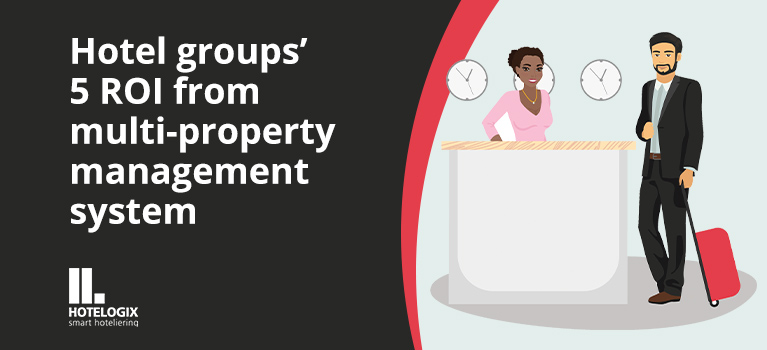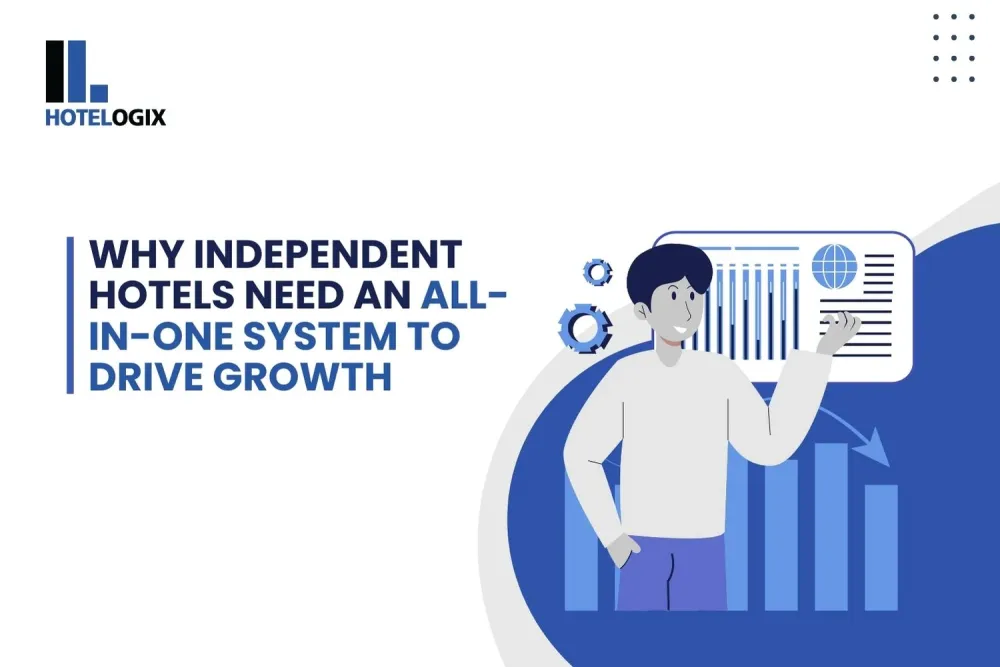Like every organisation, hotels, too, expect to see certain business benefits from IT investment. And when it comes to hotel groups, their list of desired results slightly differs from their independent peers. And why not? Their needs are different. They operate differently. They need a cloud-based multi-property management system. This blog will look at how they go about it and what they expect to achieve.
#1 – Centralised control
For almost 100% of hotel groups, gaining centralised control over group operations is at the top of the list. For them, it is paramount to be able to monitor operations across member properties from a central dashboard. They can log in to the multi-property management system with a single sign-on.
Then a Central Reservation Office (CRO) allows them to manage reservations across all their properties from the central call centre. Plus, they can even manage Travel Agents and Corporate profiles centrally. This whole game of central control is critical for them to save time while enhancing operational efficiencies.
#2 – Improved guest satisfaction
In the service industry, guest satisfaction is everything, and what is the point of investing in technology that doesn’t help serve guests better? About 90% of hotel groups want digitisation to improve guest satisfaction levels, and they realise that a cloud-based multi-property solution is an ultimate tool for this. It can let them have group-wide access to guests’ historical data to understand their preferences and offer them personalised services.
Not only this, but it can also integrate with other third-party solutions providers to provide contactless services to their guests. Statistics indicate that over 90% of hotel guests like contactless services, and hotel groups are gearing up to leverage the power of this new-age technology to win over their guests’ loyalty.
#3 – Reduced IT operations costs
Who doesn’t want to save costs? Over 80% of hoteliers look at investment in IT and digitisation to save costs. It is more challenging for hotel groups as their IT requirement is quite complex. But a cloud-based multi-property management system addresses all their concerns. How?
First and foremost – a cloud-based multi-property management system is available on a subscription-based model. Hotel groups neither have to invest in multiple servers and other IT hardware across properties nor have to have dedicated IT teams for their maintenance. They don’t have to worry about high annual maintenance costs. System updates are free, and PMS vendors can train the hotel staff online. It, too, saves additional costs for hotels. In short, without any higher upfront investment, a hotel group can significantly lower their IT overhead costs.
#4 – Increased revenues
To start with, we look at it from the room sales point of view. Integrated with a channel manager, a multi-property solution can help hotel groups to sell more via OTAs. Moreover, an integrated booking engine allows users to generate more direct bookings. The management can also configure multiple special/seasonal packages across properties to attract more guests and sell more rooms.
Another vital aspect is automated revenue management. The solution’s integration with a revenue management system does the job. It considers competition rates, local area demand, and occupancy to change the room rate automatically and optimally. It helps sell more rooms at the best rate to ensure enhanced occupancy and RevPAR.
#5 – Enhanced data access capabilities
Data can tell a lot about an organisation’s strengths and weaknesses. Hotel groups and chains need to have the right type of data at the right time to make the right business decision. About 80% of hotels plan to ensure data access capabilities among their staff across the department to improve their operational efficiencies.
Now for this, a cloud-based multi-property solution is the only option. For example, users can access it on the web or via Mobile PMS Apps. It allows staff to access KPIs including ARR, RevPAR, Occupancy, House Status, Revenue Analysis, Business on Books and Top Performing OTAs, etc. and enables them to make data-driven decisions. It is also a great way to ensure staff satisfaction, leading to better retention.
Over the years, the Hotel PMS has become more robust and comprehensive with the emergence of the cloud and evolved business dynamics. Its capabilities have expanded beyond merely taking care of reservations and housekeeping. It has now become the tool to drive overall growth by covering all areas of hotel operations, including marketing and distribution. For hotel groups, the trick lies in choosing the right multi-property management system from a technology vendor with experience in serving global and matured hospitality markets.
This article was originally published in BW Hotelier.




